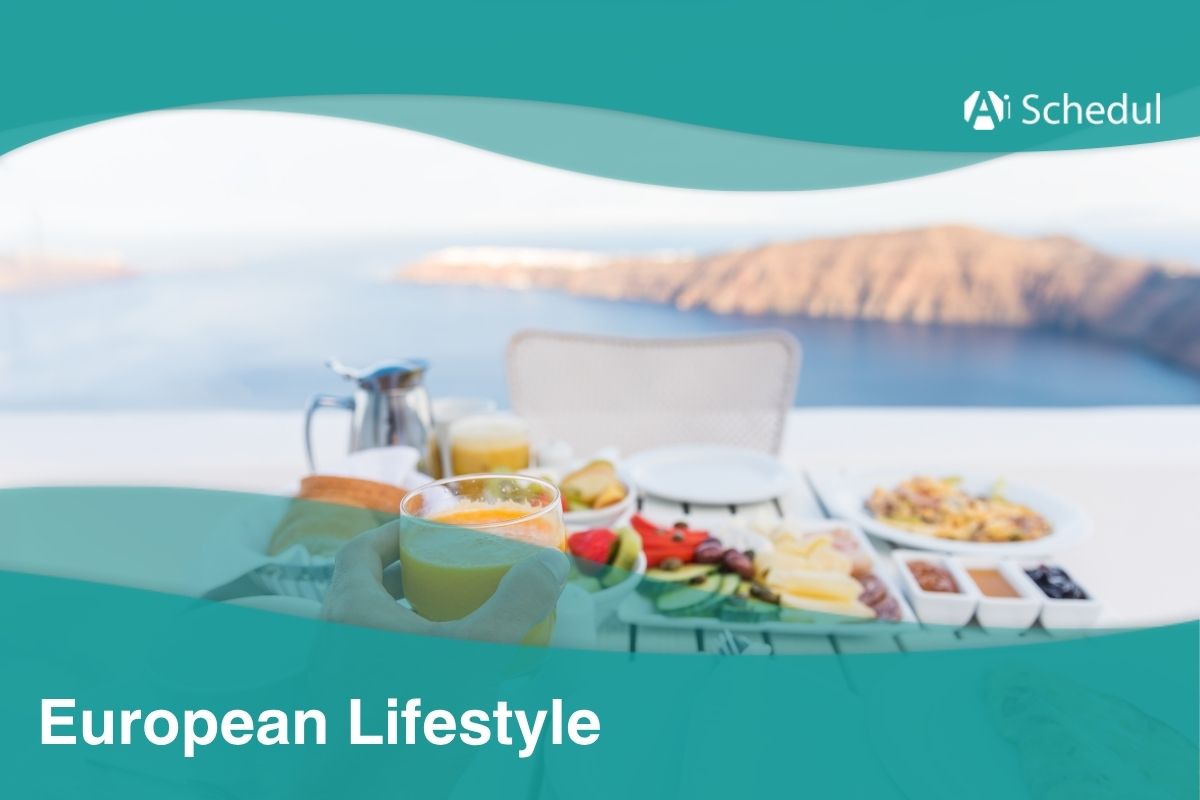Have you ever stepped off a plane and instantly felt like you were in a completely different world? Travelers experience a similar feeling when landing in Europe and seeing the European lifestyle for the first time.
From the pace of life to the little everyday customs, the European lifestyle can make you feel refreshed and surprised. Whether you’re traveling for fun, study, or a long work stint, it’s helpful to understand what makes the European way of living distinct. One might even notice how fashion influencers effortlessly blend into the cultural tapestry, influencing trends and styles across the continent.
In this guide, you’ll explore the top European lifestyle changes you’ll likely notice when you touch down—and how having a Europe eSIM can make the adjustment even smoother.
Table of Contents
1. Slower, More Relaxed Pace of Life
One of the first things you’ll probably notice regarding European lifestyle is how life feels a bit more relaxed. There’s less rushing around, and people seem to genuinely take their time—especially regarding meals, catching up with friends, or simply going about their day. It’s not about being slow or lazy—it’s about finding a healthy rhythm.
Taking a long lunch, wandering through a local market, or chatting at a café isn’t just common; it’s part of everyday life. At first, it might feel different, but it won’t take long before you start enjoying the slower pace.
2. Efficient Public Transport is a Way of Life
In most European cities, public transport is reliable and a common choice for locals. Trains, trams, and buses are well-connected and clean, making it easy to get around without a car.
Many people walk or cycle to work or school, especially in urban areas. The result? Fewer traffic jams, lower pollution, and a more active lifestyle. If you’re new to using public transport daily, expect a bit of a learning curve—but soon, you’ll be hopping on the metro like a local.
3. Dining is a Social Experience, Not Just a Meal
In Europe, food isn’t rushed. Whether you’re in Italy, Spain, or France, dining out is as much about conversation and connection as it is about what’s on the plate. Meals often stretch for hours, especially dinner, and chatting between courses is normal.
Restaurants rarely rush you out, and splitting the bill may be met with polite confusion. Sharing food and stories at the table is part of the culture, so don’t be surprised if lunch becomes the highlight of your day.
4. People Really Do Value Work-Life Balance
Unlike hustle-driven cultures, many Europeans take work-life balance seriously. Shorter work hours, longer holidays, and strong worker protections are not unusual. In some countries, it’s common to leave work by 5 PM and enjoy evenings with family or friends.
This doesn’t mean people don’t work hard—it just means they value living outside of work just as much. You’ll see people unplug after office hours, making time for hobbies, travel, and relaxation.
5. Cash Isn’t Always King—But Neither is Your Local SIM
While many cities are going cashless, don’t be surprised if you find small shops or rural cafés that still prefer coins and notes. Europe is a mix regarding payment preferences, so it’s good to be prepared with both options.
Similarly, your mobile service might not work the way you expect. Roaming fees can pile up fast, which is why switching to a Europe eSIM is a smart move. It gives you hassle-free connectivity across borders, helping you navigate, translate, or connect with your home without worry.
6. Personal Space is Smaller, But Connection is Bigger
In some places, personal space is a big deal—but in Europe, the norms can be quite different. You may find people standing closer in queues or greeting with a cheek kiss instead of a handshake.
Public spaces are also more compact—there are fewer cars, lifts, shops, and even coffee cups! But with the smaller spaces comes a stronger sense of connection. People often build close-knit communities and take time to get to know their neighbors.
7. Weekend Getaways Are Almost a Habit
Thanks to short distances and well-connected transport, traveling within Europe is incredibly easy. Locals often take quick weekend trips to nearby cities or countries, turning every few days off into a mini holiday.
A two-hour train ride can take you from France to Belgium or Germany to the Netherlands. This frequent travel is part of the European lifestyle—and something you’ll likely find yourself adopting. Weekend bags, travel apps, and last-minute plans quickly become part of the norm.
Final Words
Life in Europe is full of small but meaningful lifestyle shifts that can take some time to adjust to, but most people end up loving them. From relaxed meals and efficient transport to work-life balance and spontaneous weekend trips, it blends charm and practicality. Keep an open mind, embrace the unexpected, and you’ll soon settle into the European lifestyle. If you’re planning a European trip soon, you’re in for more than just sightseeing—you’re stepping into a new way of life.
FAQs on European Lifestyle
1. What should I expect regarding meal times in Europe?
Meals in Europe are often enjoyed at a leisurely pace, especially dinner, which can last for several hours. This cultural approach values conversation and connection over rushing through meals.
2. Is public transport reliable throughout Europe?
Yes, public transport in most European cities is efficient and well-connected. Trains, trams, and buses are commonly used, making it easy to get around without a car.
3. How do Europeans view work-life balance?
Many Europeans prioritize work-life balance, with shorter work hours and longer holidays compared to some other regions. They value leisure time and relaxation outside of work.





![Top 12 Influencer Marketing Agencies & Companies [2025]](https://aischedul.com/wp-content/uploads/2025/02/YouTubers-with-OnlyFans-2-500x383.jpg)
